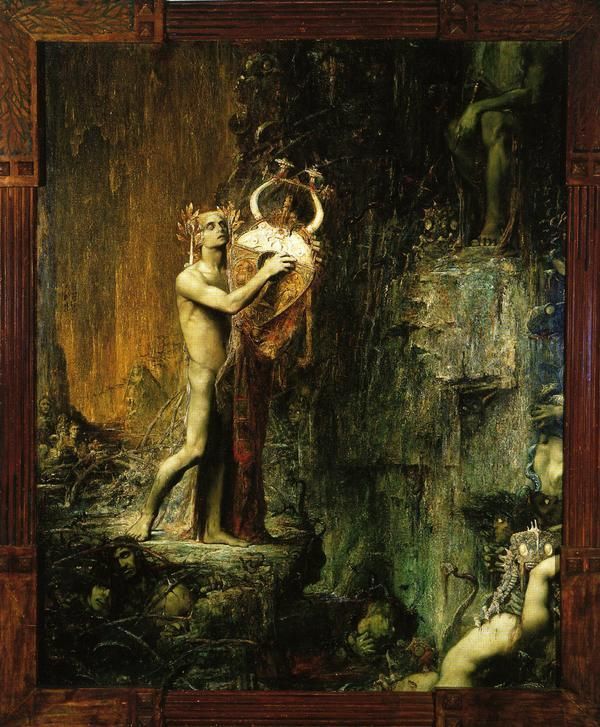Modernity and the Logoi
Oct. 18th, 2023 09:06 am
The Name of Nature
In the Oracles we are told:
Look not upon Nature, for her name is fatal.
We saw yesterday that mathematical principles are media which link the Sensible World of our experience to the Intelligible World of pure mind. The term that Plotinus uses for such principles is logoi, the plural of Logos. Now, like everything else, the logoi exist at a particular level of reality. They aren't sensible-- you cannot see or touch or hold the Pythagorean Theorem-- but they are directly involved in shaping matter. Their level of being is usually referred to simply as Nature, the generator of the physical world. This is what the verse in the Oracles cited above is referring to. This is another area where we find difficulty in working with some of the ancient texts. To us, this sentence, "Look not upon Nature, for her name is fatal" means something like, "You're going to be killed if you go into the woods." We're left to assume that the Oracle is referring to Jason or some such thing.
Of course, this isn't the case at all. "Fatal," in this context, refers to "fate." In other words, Nature is deterministic. 1+1 always equals 2, whether in the case of two monkeys, two stars, or two atoms; there are no other possible outcomes. The logoi determine matter.
As we have seen, mathematical propositions are not the only types of logoi. Logical formula are another. If all p are q; And if s is p; Then s is also q. This is true for all objects p, q, and s. All men are mortal. Socrates is a man, therefore Socrates is mortal. All crows are black. Jim is a crow, and therefore Jim is black. All coffee is healing to the soul, including the cup I am about to make. And so on.
The games of Eric Berne and the Drama Triangle of Stephen Karpman are also logoi, and also deterministic. When one is drawn into a dramatic triangle, one takes on the assigned role regardless of the other players. A Hero is a Hero whether their Villain is Zionism, Terrorism, Globalism, Fascism, Black Lives Matter or Ben Shapiro.
But learning these things has been greatly useful to us. We study mathematics in order to reason numerically, logic in order to learn to think clearly, transactional psychology in order to act deliberately. So what does the Oracle mean when it tells us not to look upon Nature?
One of the most important Occult maxims tells us, "What you contemplate you imitate." This was a truth well known to the ancients. The act of contemplation belongs to Intellect, and Intellect ultimately unites with whatever it looks upon. Spend too much time looking upon the deterministic logoi of Nature, not employing them properly, as a ladder to the superior realms, but simply as tools for the manipulation of matter, and you too will become deterministic.
This, of course, explains one of the oddest features of modern life-- why our best scientists are so unbearably stupid.
And of course, this has important implications for Druidry and similar traditions as forms of "Nature Spirituality." Nature in the sense used by the Oracles is everywhere, at all times. But right now I'm sitting at my desk, in my house, staring at a computer. After I press "Send" I'm going to go on a walk in the woods out back. Probably I'll bring that coffee I was just talking about with me, and give some as an offering to the genii loci. I'll find a place to meditate, maybe do some qigong, certainly pray to the spirit of the place. It's obvious to anyone that if I refer to "nature spirituality," I'm talking about the walk in the woods, not the time spent sitting at a computer. And so we see that by "Nature" we mean something a little different from Nature as a plane of being. No-- "Spirituality" as a class of activity must refer to anagoge or anagogy, that is, the elevation of the awareness to higher levels of being. This can be accomplished by various means, including art, physical movement, the reading of sacred scripture. When we say "Nature spirituality," in this case, we are using the word "Nature" in its more common form, meaning something like "The out of doors" or, better, "That which is not created by Man." Nature spirituality, then, is anagogy accomplished in the out of doors, by means of encountering the logoi of Nature in Nature.